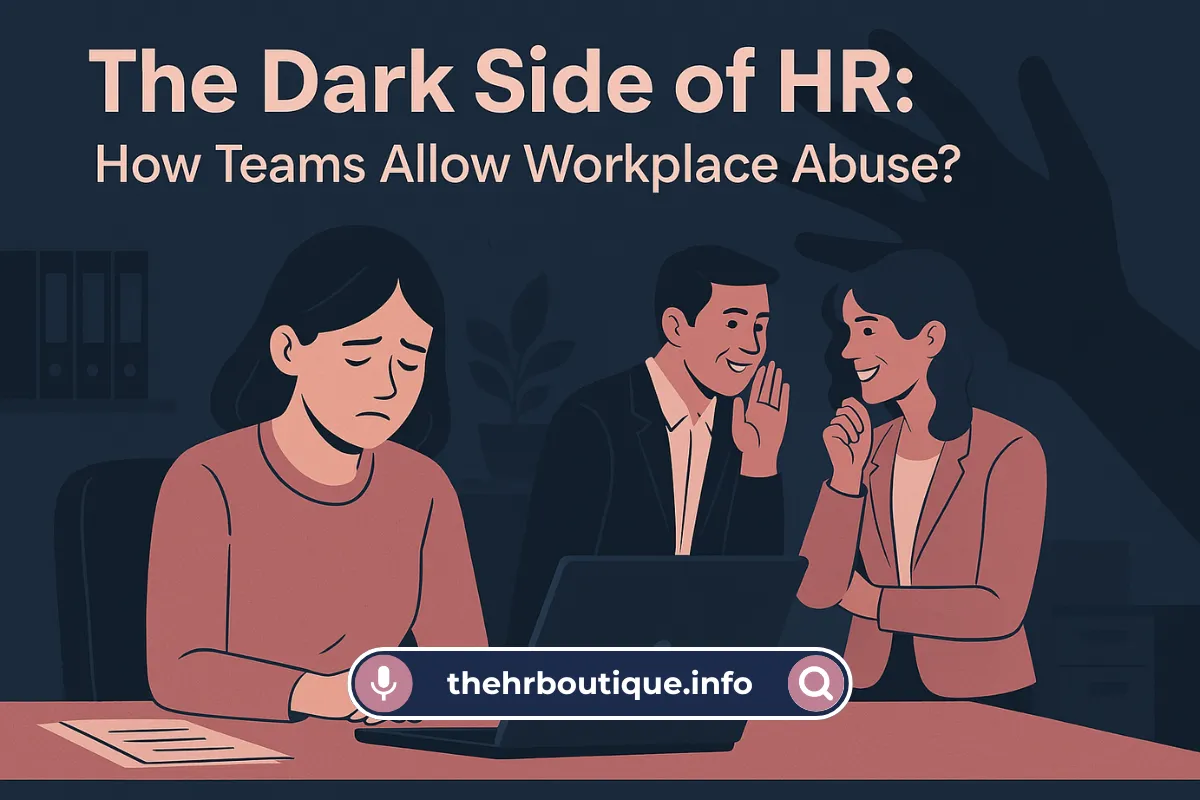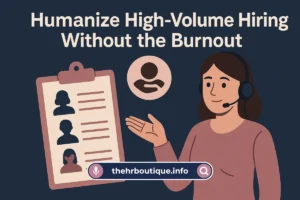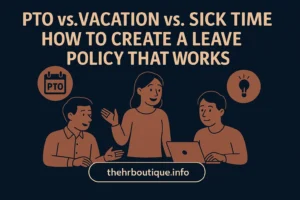Let’s cut the corporate BS for a second. I’ve been in HR for fifteen years, and here’s what nobody wants to admit – most workplace exploitation happens because HR teams are too busy playing nice to protect employees.
You know what I’m talking about. That manager who “just has high standards” but somehow only yells at women. The “rockstar” employee pulling 80-hour weeks because they’re terrified of being replaced. The promotion that always seems to go to the CEO’s golf buddy.
This isn’t about compliance checklists. It’s about whether you’re willing to be unpopular to do your actual job.
The Exploitation Playbook (And How HR Lets It Happen)
The Slow Burn
- Starts with “Can you just…” requests.
- Becomes an unpaid overtime expectation.
- Ends with burnout resignations that HR calls “quiet quitting.”.
The Culture Shield
- “That’s just how finance people talk.”
- “He’s old school – you’ll get used to it.”
- “We work hard and play hard” (translation: we abuse you, then buy pizza).
The Paper Trail Illusion
- Beautiful policies nobody follows.
- Mandatory training, everyone sleeps through.
- Complaint processes are designed to discourage complaints.
Here’s the uncomfortable truth: If your employees need a PhD in labor law to know their rights, your system is broken.
Why Most HR Teams Fail at Prevention?
We pretend it’s complicated. It’s not. Exploitation thrives when:
- HR reports to the same people who create the problems.
- “Business needs” always trump employee rights.
- Nobody wants to rock the boat.
I’ll never forget the manufacturing VP who told me, “If we actually paid overtime properly, we’d go bankrupt.” My response? “Then your business model is exploitation.” (Spoiler: They found the money.)
Real Protection Requires Getting Your Hands Dirty
1. Hunt the Subtle Stuff
- Track which departments have sudden “performance issues” with protected-class employees.
- Audit payroll for “computer errors” that always seem to short the same groups.
- Sit in on team meetings – the real culture shows when HR isn’t in the room.
2. Redefine “Business Necessity”
When leadership says, “We can’t afford to…”
- “Can’t afford proper breaks? Then we can’t afford to operate.”
- “Can’t pay overtime? Then we’re scheduling illegally.”
- “Can’t lose that toxic rainmaker? Watch me.”
3. Make Whistleblowing Rewarding
- Publicly promote people who spoke up.
- Celebrate terminated bullies like you would a new client.
- Send the message: “We fire abusers here”.
The HR Test You’re Probably Failing
Ask yourself:
- When was the last time you told leadership something they didn’t want to hear?
- How many complaints have you brushed off as “not that bad”?
- Would your lowest-paid employee trust you with their paycheck stub?
If you’re uncomfortable with these answers, congratulations – you’re finally ready to do real HR work.
The Only Metric That Matters
Not engagement scores. Not turnover rates. Ask one question: “Do our employees sleep well at night?” Because nobody rests easy, worries about:
- Next week’s rent if they call in sick.
- Retaliation for reporting harassment.
- Whether their kid’s birthday makes them “uncommitted”.
That’s your job. Not making the C-suite comfortable. Not maintaining the status quo. Protecting human beings who trusted your company with their livelihoods.
So what’s it going to be – corporate puppet or actual advocate? The choice is yours, but remember: history doesn’t remember the HR teams that kept their jobs. It remembers the ones that changed them.





